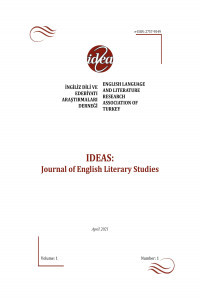Gender and Domestic Space in Ahmed Ali's and Krishna Sobti's Novels on Old Delhi
Gender and Domestic Space in Ahmed Ali's and Krishna Sobti's Novels on Old Delhi
Female perspective and agency in Delhi from the 1920s to the 1940s do not usually find mention with regard to novels written about that significant period. Much celebrated novels such as Twilight in Delhi by Ahmed Ali and The Heart Has Its Reasons by Krishna Sobti are usually viewed as nostalgic evocations of the lost past of the city as it was moving out of colonial rule and into a new era. This paper examines the complexities of gender relations and segregation as offered in the novels, which mirror and showcase the gradual intensification of the colonised city shifting into a space of independence, although at first with timid hesitation. It displays the novels as structuring and perpetuating gendered relationships between women and men as also, importantly, between women in the household and those outside it. While published in markedly different times, the everyday lived realities of the time as explored in Delhi’s literary landscape by Ali and Sobti exhibit great similarities in the gendered ramifications of female dispossession as per policy, and the economic implications of women’s property being in the hands of “their” men. Transformations in the city space influence domestic spaces, impacting the female characters. In examining these socio-spatial segregations in early urban Delhi literature, the paper opens the field for further research on economic systems in literary texts.
Keywords:
Delhi, Ahmed Ali, Krishna Sobti, Gender segregation, Space Social space,
___
- Ali, Ahmed. Twilight in Delhi. Oxford UP, (1940) 1966.
- Anderson, David D. “Ahmed Ali and Twilight in Delhi.” Mahfil, vol. 7, no. 1/2, 1971, pp. 81–86.
- De Certeau, Michel. The Practice of Everyday Life. Translated by Steven Rendall. U of California P,1984.
- D., S. “The Golden Tradition: An Anthology of Urdu Poetry by Ahmed Ali.” Bulletin of the School of Oriental and African Studies, University of London, vol. 37, no. 2, 1974, p. 529. Cambridge Core, doi: 10.1017/S0041977X00137152.
- Gupta, Trisha. “A Deliberate Outlier.” Mumbai Mirror, 30 Jan. 2019, https://mumbaimirror.indiatimes.com/others/things-to-do/a-deliberateoutlier/articleshow/67695459.cms. Accessed 15 Mar. 2021.
- Heath, Deana, and Stephen Legg. “Introducing South Asian Governmentalities.” South Asian Governmentalities: Michel Foucault and the Question of Postcolonial Orderings, edited by Stephen Legg and Deana Heath, Cambridge UP, 2018, pp. 1-36.
- Kumar, Anita S. “Twilight in Delhi: A Study in Lyricism.” Indian Literature, vol. 19, no. 2, 1976, pp. 25-38.
- Kuruvilla, Elizabeth. “Hindi is an Epic Language: Krishna Sobti.” Mint Lounge, 13 May 2016, https://www.livemint.com/Leisure/2UCsyjulIq455TpCF2wroK/Hindi-isan-epic-language-Krishna-Sobti.html. Accessed 15 Mar. 2021.
- Legg, Stephen. Prostitution and the Ends of Empire: Scale, Governmentalities, and Interwar India. Duke UP, 2014.
- Lefebvre, Henri. The Production of Space. Translated by Donald Nicholson-Smith. Basil Blackwell, (1974) 1991.
- Massey, Doreen. “Doreen Massey on Space,” podcast with Nigel Warburton. 2 Jan. 2013. https://www.socialsciencespace.com/2013/02/podcastdoreen-massey-onspace/. Accessed 15 Mar. 2021.
- Sobti, Krishna. The Heart Has Its Reasons [Dil-o-Danish, 1993]. Translated by Reema Anand and Meenakshi Swami. Katha, 2005.
- Sobti, Krishna, Anamika, and Preeti Gupta Dewan. “Krishna Sobti in Conversation with Anamika.” Indian Literature, vol. 57, no. 3, 2013, pp. 21-35.
- Wrede, Theda. “Introduction to Special Issue: ‘Theorizing Space and Gender in the 21st Century’.” Rocky Mountain Review, vol. 69, no. 1, 2017, pp. 10-17.
- Başlangıç: 2021
- Yayıncı: İngiliz Dili ve Edebiyatı Araştırmaları Derneği / English Language and Literature Research Association of Turkey
Sayıdaki Diğer Makaleler
Review of The Force of Non-Violence: An Ethico-Political Bind
Marietta KOSMA, Amir PİCHHADZE
Dialectics of Place and Space in Forster's A Passage to India: A Lacanian Reading
Gender and Domestic Space in Ahmed Ali's and Krishna Sobti's Novels on Old Delhi
A. J. Greimas in Jakarta: Essay on Story Structure
Jacobean Morality and Moral Performativity in Volpone and Women Beware Women
Samuel Beckett's Breath on Screen: Damien Hirst’s Adaptation
